Mulch vs compost – what is the difference between these two valuable garden ingredients?
Our expert guide details the differences, plus where and when they should be used
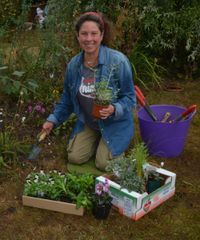
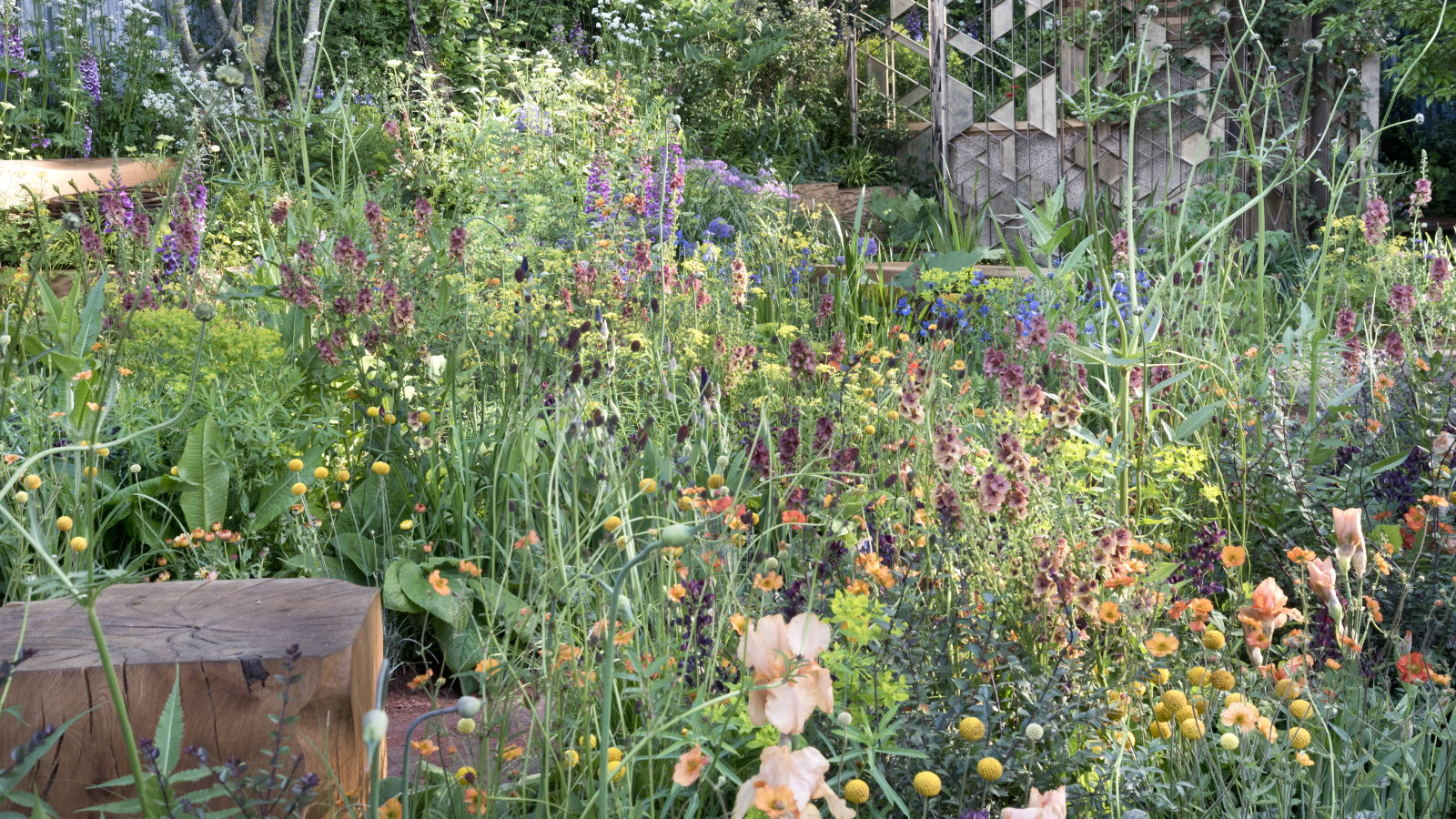
Design expertise in your inbox – from inspiring decorating ideas and beautiful celebrity homes to practical gardening advice and shopping round-ups.
You are now subscribed
Your newsletter sign-up was successful
Want to add more newsletters?

Twice a week
Homes&Gardens
The ultimate interior design resource from the world's leading experts - discover inspiring decorating ideas, color scheming know-how, garden inspiration and shopping expertise.

Once a week
In The Loop from Next In Design
Members of the Next in Design Circle will receive In the Loop, our weekly email filled with trade news, names to know and spotlight moments. Together we’re building a brighter design future.

Twice a week
Cucina
Whether you’re passionate about hosting exquisite dinners, experimenting with culinary trends, or perfecting your kitchen's design with timeless elegance and innovative functionality, this newsletter is here to inspire
One of the most commonly asked questions in gardening is ‘what’s the difference between mulch and compost?’ Both are usually brown and soil-like, both help nurture plant growth – so how come they are not the same thing?
The short answer is that compost is usually finer in texture, is used to grow plants at the various stages of their development and is a beneficial addition to soil, while mulch goes on top of the soil, helps protect it and can be used as part of your landscaping ideas for your yard.
But this is far too simplistic an answer, because there are certain areas where a cross-over arises – such as whether homemade compost is a plant fertilizer, mulch or a bit of both. I've spent decades gardening, and in this article I’ll be explaining the differences between mulch and compost and what they should and shouldn’t be used for.
Mulch vs compost – what is the difference?
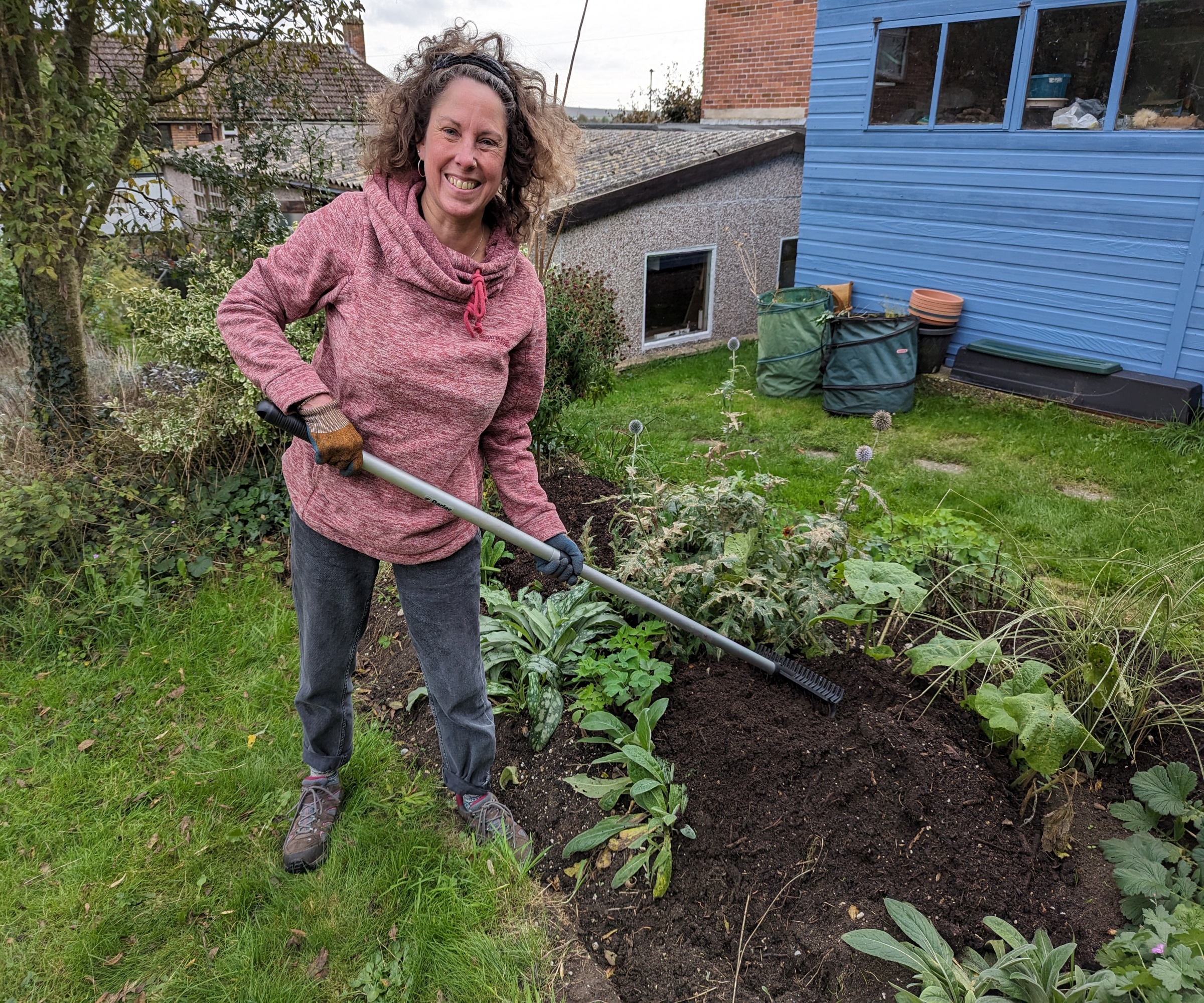
Homemade compost can be used as a fantastic, nutrient-rich mulch to improve soil and feed plants
Like many gardeners, I turn to both mulch and compost to get a healthy garden and as part of my no-dig gardening regime.
We have an eco-friendly garden and make our own compost to use as a soil conditioner, mulch, to pot on cuttings and fill up the raised beds where we grow most of our vegetables.
I usually buy in commercial compost for sowing seeds and potting up ericaceous plants because we have very chalky (alkaline) soil, although there are ways of making soil more acidic should you need to.
I also use various bought-in materials to use as mulch. Wood chippings like these pine bark nuggets at Amazon are a great way to suppress weeds, while grit and gravel work well around potted hostas and other vulnerable plants to keep slugs and snails at bay.
Design expertise in your inbox – from inspiring decorating ideas and beautiful celebrity homes to practical gardening advice and shopping round-ups.
What is mulch?
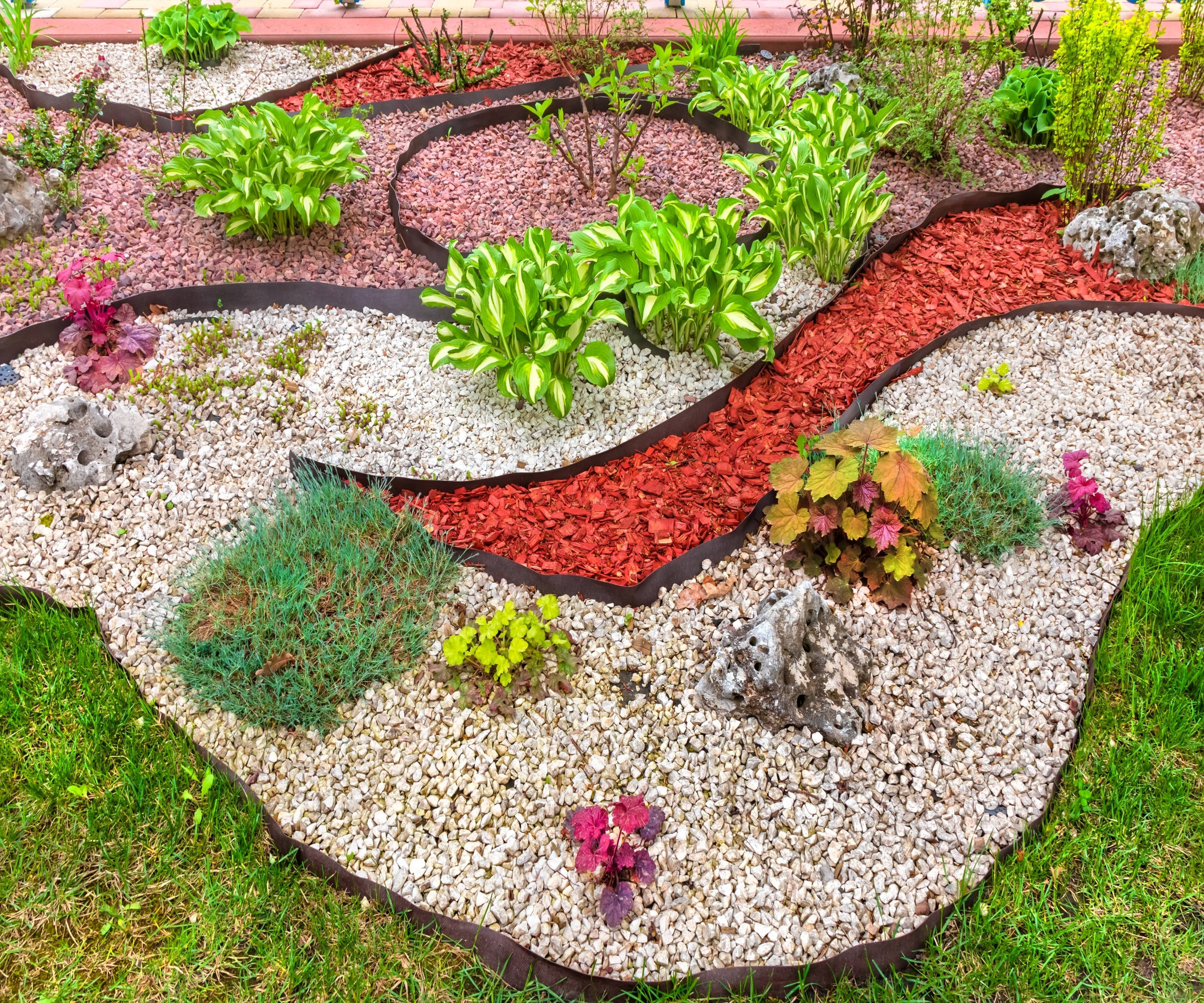
Inorganic mulches can include coloured gravel or glass beads that create an attractive effect in rockeries and borders
Mulch can be either organic or inorganic. Organic mulch is made of a range of decomposed materials including straw, bark chips, good homemade compost, grass clippings and fallen leaves.
It can be used to stop soil freezing in winter, to protect bare soil and to feed soil that's growing a wide range of plants, from the vegetable garden to roses,
I also use the compost from old growbags and containers as mulch once they have finished growing plants. This has little nutritional value left, but works well as a soil conditioner and improver.
Inorganic mulching materials include stone like this slate stone at Amazon, gravel like this mixed color pea gravel on Amazon, even glass beads such as the Skyflame fire glass giamonds on Amazon.
They are used as protective or decorative soil and pot toppings that help retain moisture, suppress weeds, deter pests, insulate against the cold, and prevent soil erosion.
Inorganic mulches are a common feature of rock gardens and help protect low-growing rockery plants from pests and damp soil that can rot leaves and stems.
The pros and cons of mulching
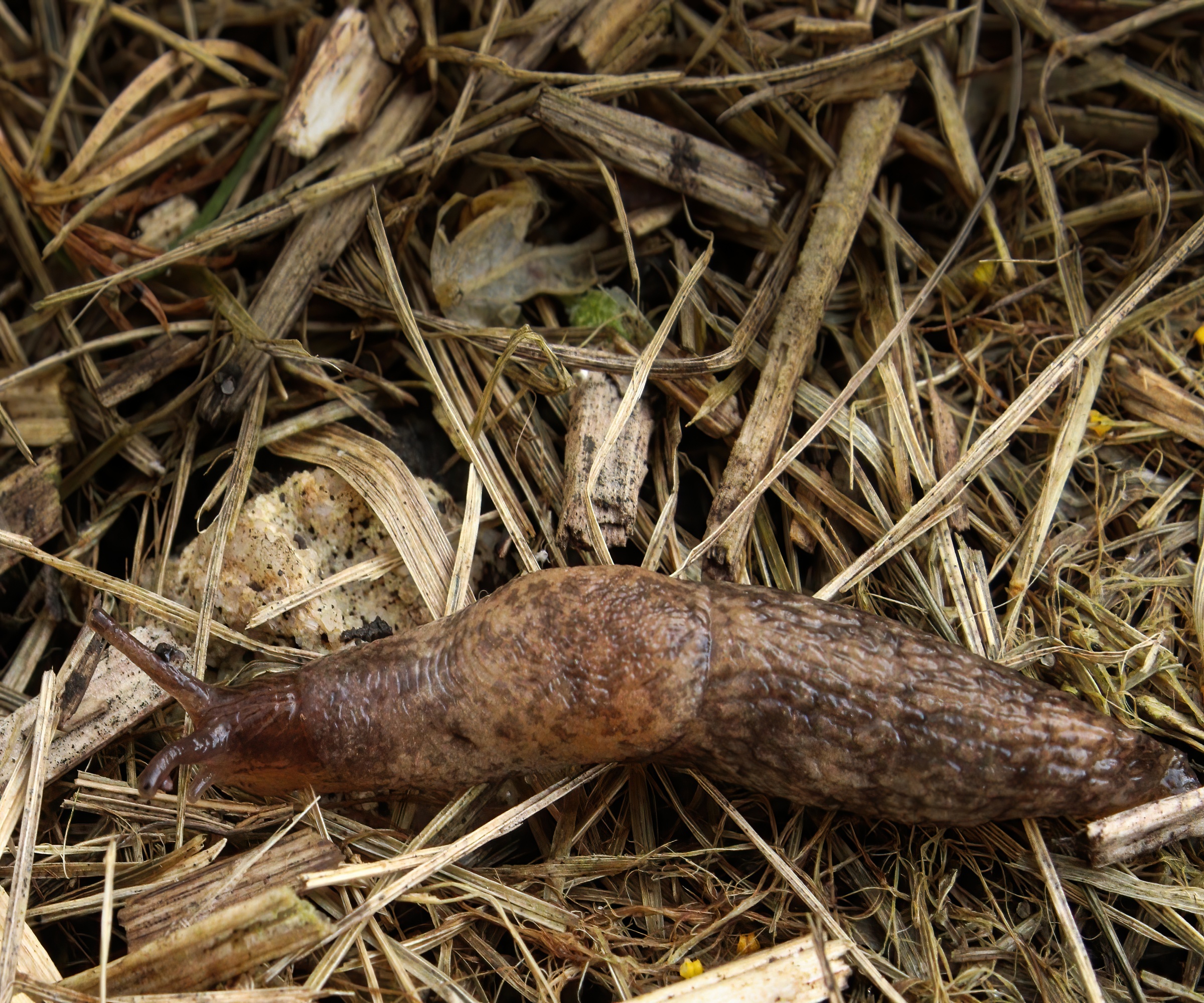
Mulching will greatly improve your soil - but watch out for pests hiding within it
Organic mulch is usually applied to beds and borders in a thick layer and this is an important part of your fall garden checklist. It will protect and nourish the soil as it breaks down.
This type of mulch is hugely beneficial and it helps to keep the soil moist, blocks sunlight so weeds can’t grow, enriches the soil and protects it from erosion by wind, rain and snow.
There are a few situations where organic mulch can cause problems or needs to be used with caution. For starters, weeds! Homemade mulch containing composted weeds may have weed seeds that germinate when spread around the yard.
A major mulching mistake is layering it against the trunks and stems of trees because it can cause them to rot, and bear in mind that some mulches such as bark chips and straw can provide shelter for garden pests such as slugs and snails.
Dry mulch can become a fire hazard in areas prone to wildfires.
Inorganic mulch such as stones and gravel look classy, will suppress weeds and are a safe option in areas troubled by wildfires. But they don’t feed plants, can cause soil compaction and again, can provide a home for pests.
Stone mulch is also initially more expensive than organic alternatives, but it will last longer and need renewing less frequently.
What is compost?
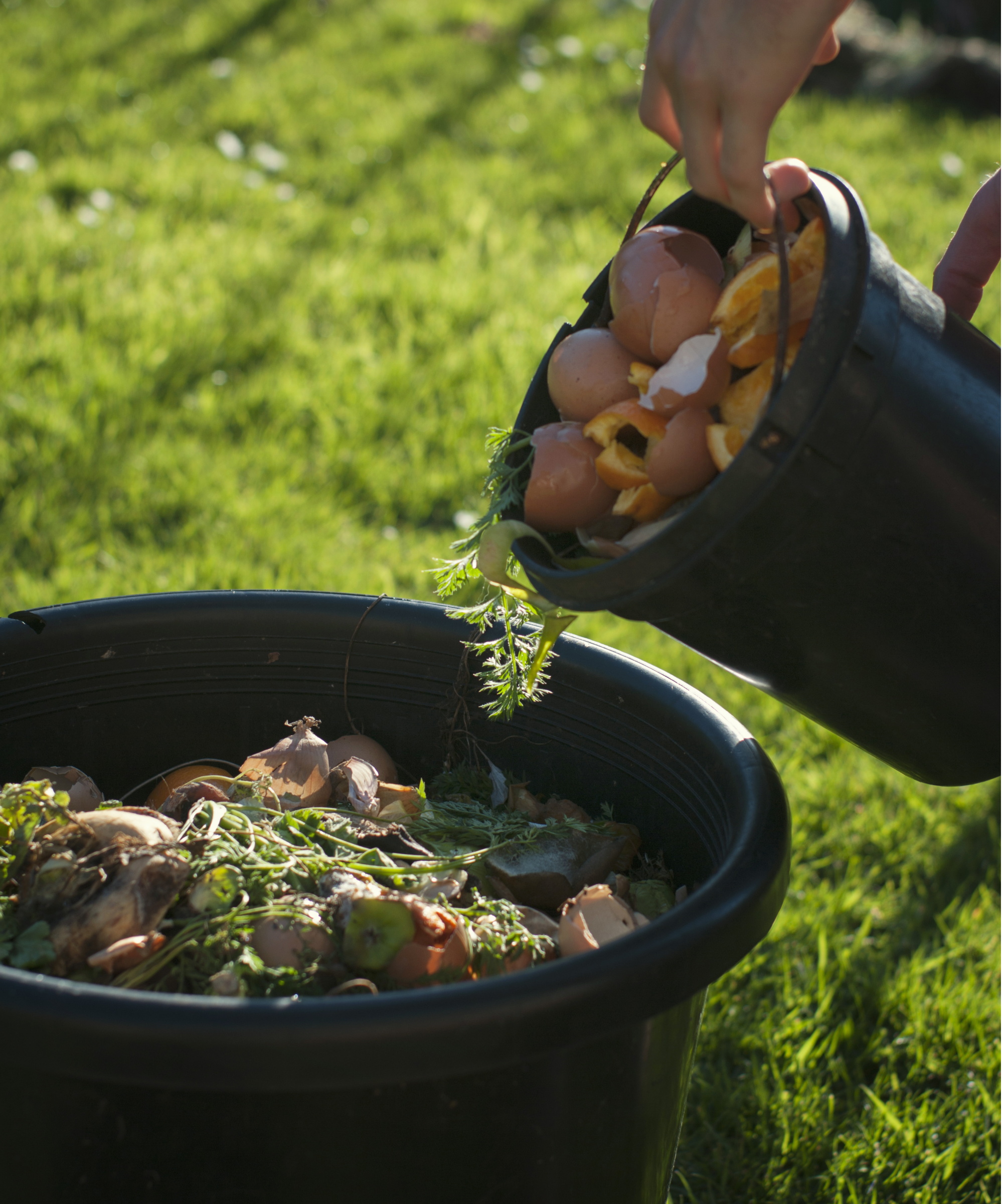
Making homemade compost is a fantastic way to recycle garden waste and kitchen peelings, enrich your yard soil and also save money
Most yards have space to incorporate a compost bin and many gardeners make their own compost out of garden green waste and prunings, and kitchen peelings.
It saves money, is better for the environment and it is relatively easy to build a compost pile or add a discreet compost tumbler like this compact best-seller on Amazon.
Commercial compost is made up of a range of decomposed organic materials such as coconut coir, green waste and wood chip and is usually used for growing plants.
Commercial seed compost, such as Mosser Lee seed-starter soil on Amazon is specifically developed to meet all the needs of emerging seedlings and their roots without overwhelming them with too many nutrients.
Once you have germinated your seeds and the seedlings are large enough - we generally say when the first couple of sets of ‘proper’ leaves have developed - they can be moved into potting compost like this Burpee organic potting soil on Amazon that contains more nutrients to boost strong growth.
Potting composts are also suitable for growing a wide range of mature plants including trees and shrubs in planters.
Ericaceous compost, like Down to Earth all natural acid Mix fertilizer on Amazon is a blend of organic matter that’s suitable for acid-loving plants such as rhododendrons, azaleas and blueberries.
The pros and cons of compost
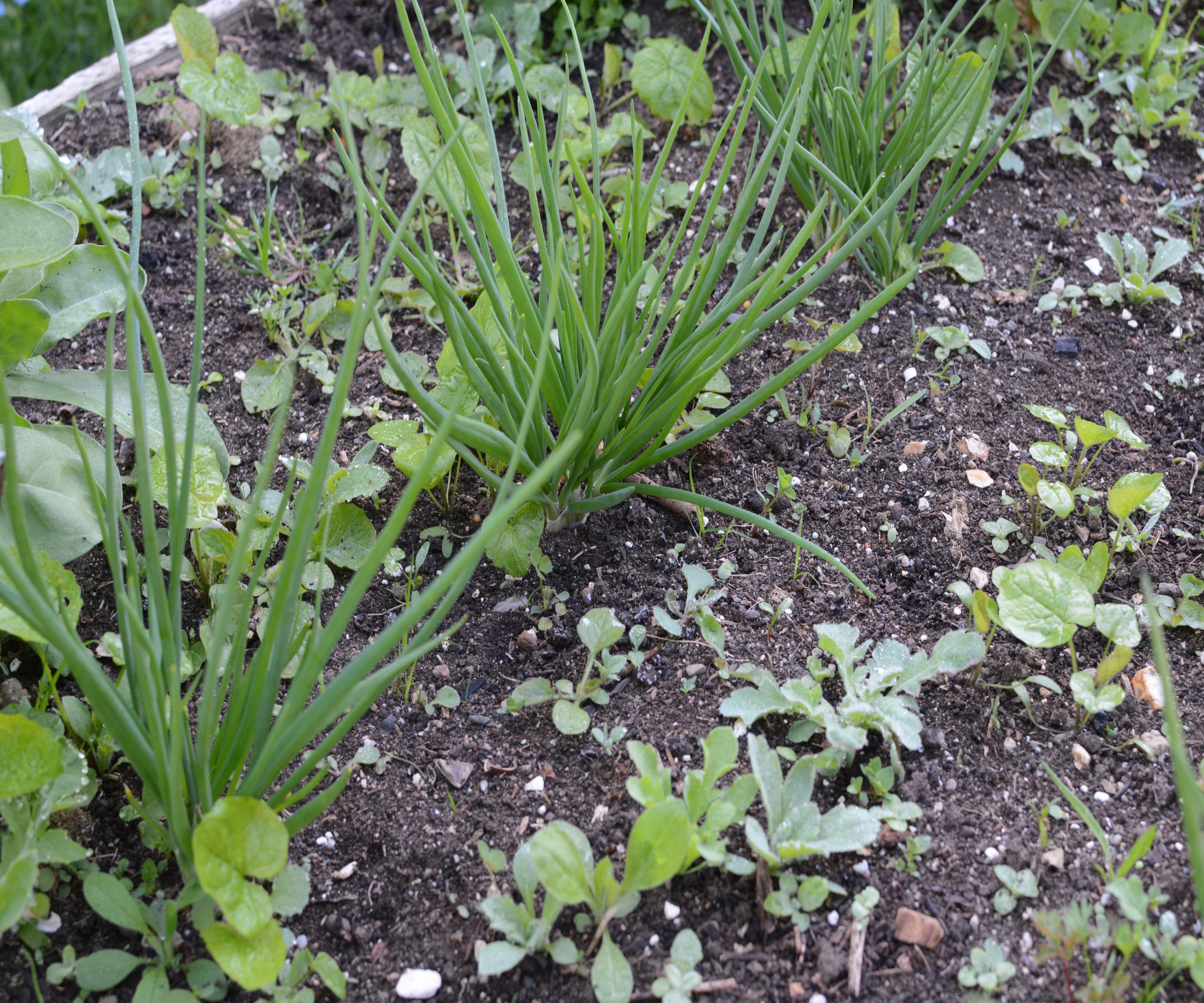
Homemade compost is great for the garden but can contain weed seeds
Compost is essential for growing healthy plants, but one of the downsides of bought compost is the way it hits our wallets.
When I need a lot of it to improve soil in the borders of our yard or top up our raised beds I use our homemade compost. As it breaks down it enriches the soil and improves its structure, boosting microbial activity and its ability to retain moisture and nutrients.
It also better for plants than synthetic fertilizers and because our compost pile gobbles up all our garden waste and kitchen peelings, it reduces the amount we send to recycling.
Apart from a few composting mistakes that should be avoided, home composting is easy, but does have a couple of negative points.
It takes time to break down enough to use, there are certain items that should never be added to the pile, and although it is safe to compost weeds, if your pile doesn’t get hot enough, the seeds live on and germinate when the compost is spread.
Luckily they can be easily hoed off, then left to rot down on the soil as a green manure.
FAQs
Are there times when I shouldn’t use mulch?
Mulch is most effective when applied to soil that is lightly damp and slightly warm. Never use mulch on soil that is frozen because it will simply trap the cold against the soil. The same applies to dry soil. A layer of mulch creates a hard cap on the surface of the soil and prevents rain from soaking through.
Can homemade composts be used to germinate seeds?
Yes it can - I have successfully made my own, but as said previously, watch out for weed seedlings.
I sieve some homemade compost to remove large pieces of debris that can hamper germination, and add a little sieved soil and leaf mulch plus some vermiculite to create a light and airy mix that has all the nutrients needed for successful germination and healthy seedlings.
Mulch and compost are both important ingredients when you want to boost soil nutrients and create a healthy, flower-filled, generously-cropping yard.
But while compost makes a good mulch, mulch doesn’t make a good compost because it is often too coarse and lacking essential nutrients. Think of compost as a slow-release, naturally nutritious addition to your soil, and mulch as a protective blanket that sits on top, keeps the soil and plants snug and helps keep weeds at bay.
If your main aim is soil protection and weed control you need to turn to mulch, and if you want to feed your plants and improve soil quality, compost is your best bet.
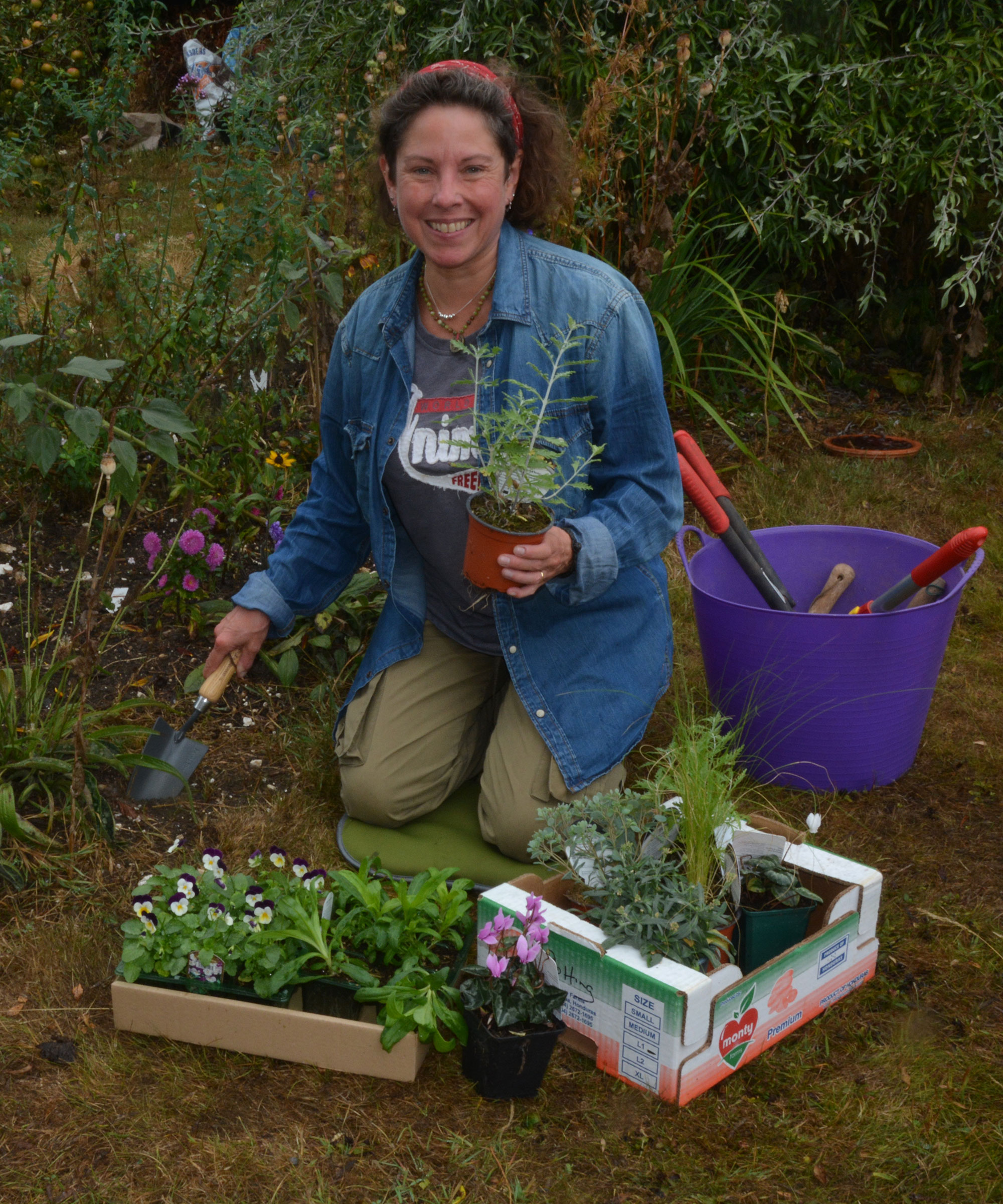
Ruth is a Contributing Editor for Homes & Gardens, and formerly Gardening Editor of Amateur Gardening magazine. She is horticulturally trained, with a qualification from the Royal Horticultural Society. Her work for Amateur Gardening, the world's oldest weekly gardening publication, involved matching gardening tasks with each season, covering everything from sowing and planting, to pruning, taking cuttings, dealing with pests and diseases and keeping houseplants healthy. She is an expert in ornamental plants and edible crops, and everything she writes about and photographs is in her own garden, that has been a work in progress since her family moved there in 2012.